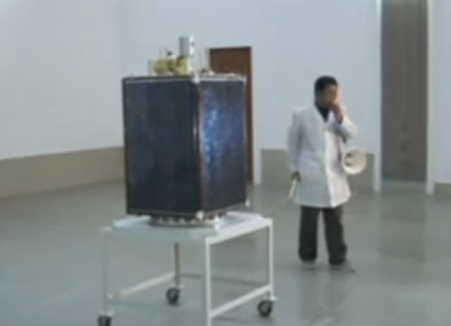North Korea’s failed satellite launch may have faded from the pages of the world’s media, but the country’s state-run news agency hasn’t forgotten the international community’s objections to the plan.
A commentary published on Thursday by Korea Central News Agency (KCNA) rehashes North Korea’s argument that the launch was part of a peaceful, civilian space program and should be seen as another chapter in the history of global space exploration.
Arguing that thousands of objects have been sent into space since the Soviet Union launched Sputnik in 1957, the editorial asserts that a nation’s technological prowess is partly defined by its space technology.
The stance isn’t very different from the statements published up to the failed launch attempt on April 13 but introduces some new arguments. Among them:
Whether a country more frequently conquers space in this age of ultra modern science and technology or not is a matter on which its fate hinges — whether it stands on its own foot in politics, economy and military affair or relies on others.
This is clearly evidenced by the fact that the U.S. seeks to dominate the world through its Global Positioning System (GPS) and different countries and regions are making efforts to develop their own system to counter it. — KCNA, May 3, 2012.
While it’s true that the global positioning industry relies on the U.S. GPS system, that’s largely because no other nations have gone to the expense or trouble of launching their own satellites. That’s changing with programs by China, the European Union and other countries, and doesn’t really have anything to do with “domination.”
The editorial ends by repeating a promise initially made on April 19th in state media outlets. Namely, that the Kwangmyongsong-3 satellite won’t be the last North Korean satellite to be placed on top of a rocket.
No one can block the DPRK in its grand drive for conquering space.
Many more satellites of the DPRK will be launched into space. — KCNA, May 3, 2012.




North Korea has for years, decades, a large budget to develop not only atomic power, but space development, but look at the map and see how anyone can access to it